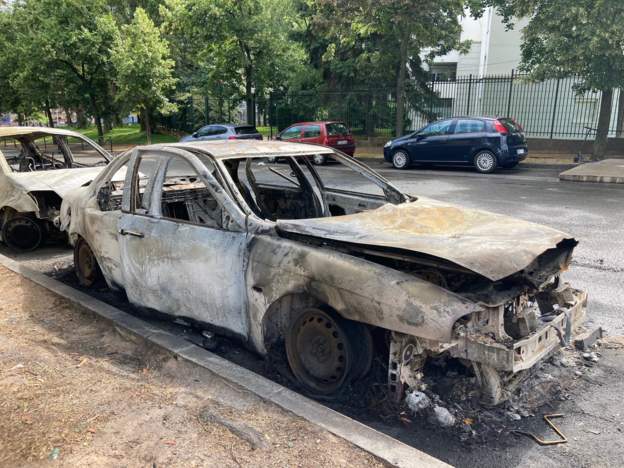I’ve just been to visit the Pablo Picasso district in Nanterre, where Nahel lived.
There are burned out cars lining the streets – remnants of the protests that have taken place over the past few nights.
Most people living here are of African and Arab descent. Many are Muslim, though it’s a mixed community – one woman handed me a leaflet inviting me to her church.
And while residents are continuing about their day – having coffee and going shopping – there’s a real sense of tension in the air.
I speak to a young black woman who lives close by. She doesn’t want to use her name because she’s worried about her safety.
“At night we hear the sound of big explosions,” she tells me. “It’s scary.”
She understands the pain and anger that protesters feel, and believes that police unfairly target ethnic minorities, but doesn’t agree with the use of violence.
“They’re destroying properties and damaging lives. They don’t know it yet, but they’re damaging the future. We will have to pay to repair this stuff”, she says.
